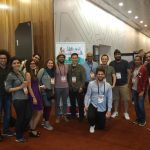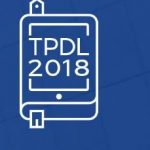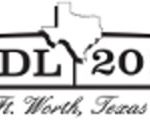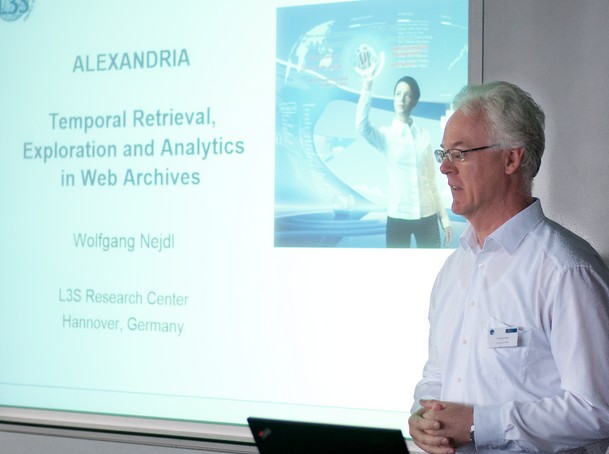On September 15th/16th the 1st International Alexandria Workshop took place at the L3S Research Center. The attractive program attracted around 50 researchers and practitioners involved in Web Archiving, Digital Preservation, Digital Humanities and Information Retrieval from all over the world to get insights in the newest developments and trends in using and analyzing Web archives.
Alexandria @ SIGIR 2014
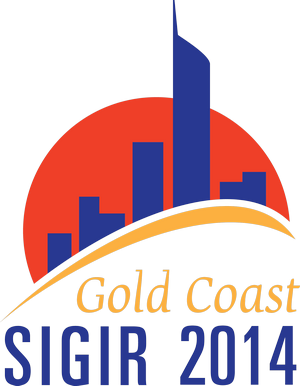 The ALEXANDRIA project team participated in the 37th Annual ACM SIGIR Conference (SIGIR’2014) in Gold Coast, Australia in July 2014. We contribute in one full paper and two short papers for the main conference, two full papers for the workshops, and a demo paper. The list of our publications at SIGIR’2014 are as follows:
The ALEXANDRIA project team participated in the 37th Annual ACM SIGIR Conference (SIGIR’2014) in Gold Coast, Australia in July 2014. We contribute in one full paper and two short papers for the main conference, two full papers for the workshops, and a demo paper. The list of our publications at SIGIR’2014 are as follows:
Full paper
- Xiaofei Zhu, Wolfgang Nejdl and Mihai Georgescu. “An Adaptive Teleportation Random Walk Model for Learning Social Tag Relevance”
Social tags are known to be a valuable source of information for image retrieval and organization. However, contrary to the conventional document retrieval, rich tag frequency information in social sharing systems, such as Flickr, is not available, thus we cannot directly use the tag frequency (analogous to the term frequency in a document) to represent the relevance of tags. Many heuristic approaches have been proposed to address this problem, among which the well-known neighbor voting based approaches are the most effective methods. The basic assumption of these methods is that a tag is considered as relevant to
1st International Alexandria Workshop
Foundations for Temporal Retrieval, Exploration and Analytics in Web Archives
15.-16. September 2014
L3S Research Center, Hannover, Germany
Significant parts of our cultural heritage are produced on the Web, yet only insufficient opportunities exist for accessing and exploring the past of the Web. While the easy accessibility to the current Web is a good baseline, optimal access to Web archives requires new models and algorithms for retrieval, exploration, and analytics which go far beyond what is needed to access the current state of the Web. This includes taking into account the unique temporal dimension of Web archives, structured semantic information already available on the Web, as well as social media and network information.
The workshop aims at bringing together communities involved in Web Archiving, Digital Preservation, Digital Humanities and Information Retrieval to encourage a closer dialogue between researchers from computer science, digital humanities and cultural heritage institutions.
Registration is now closed.
Click here for more detailed information, agenda, venue, etc.
Demo: Extraction of Evolution Descriptions from the Web
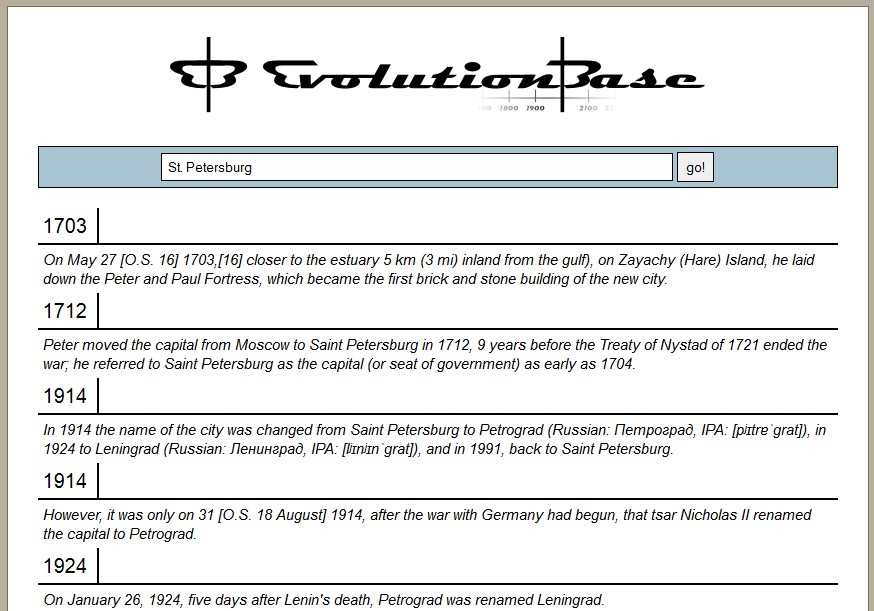 The evolution of named entities affects exploration and retrieval tasks in digital libraries. An information retrieval system that is aware of name changes can actively support users in finding former occurrences of evolved entities. However, current structured knowledge bases, such as DBpedia or Freebase, do not provide enough information about evolutions, even though the data is available on their resources, like Wikipedia. Our Evolution Base prototype will demonstrate how excerpts describing name evolutions can be identified on these websites with a promising precision. The descriptions are classified by means of models that we trained based on a recent analysis of named entity evolutions on Wikipedia.
The evolution of named entities affects exploration and retrieval tasks in digital libraries. An information retrieval system that is aware of name changes can actively support users in finding former occurrences of evolved entities. However, current structured knowledge bases, such as DBpedia or Freebase, do not provide enough information about evolutions, even though the data is available on their resources, like Wikipedia. Our Evolution Base prototype will demonstrate how excerpts describing name evolutions can be identified on these websites with a promising precision. The descriptions are classified by means of models that we trained based on a recent analysis of named entity evolutions on Wikipedia.
You can access the demonstration here: http://evobase.L3S.de/DL2014_demo/
Please also visit our demonstration at the Digital Libraries 2014 conference (DL2014), 8th-12th September 2014 in London.
About Alexandria
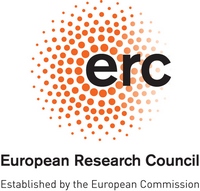 The ALEXANDRIA project (ERC Nr. 339233) aims to develop models, tools and techniques necessary to explore and analyze Web archives in a meaningful way. ALEXANDRIA will significantly advance semantic and time-based indexing for Web archives using human-compiled knowledge available on the Web, to efficiently index, retrieve and explore information about entities and events from the past. The ALEXANDRIA Testbed will provide relevant collections and algorithms that enable further research on and practical application of research results to existing archives.
The ALEXANDRIA project (ERC Nr. 339233) aims to develop models, tools and techniques necessary to explore and analyze Web archives in a meaningful way. ALEXANDRIA will significantly advance semantic and time-based indexing for Web archives using human-compiled knowledge available on the Web, to efficiently index, retrieve and explore information about entities and events from the past. The ALEXANDRIA Testbed will provide relevant collections and algorithms that enable further research on and practical application of research results to existing archives.
Motivation
Easy access to historical Web information becomes more and more important, as significant parts of our cultural heritage are produced and consumed online. Traditional institutions keeping our cultural heritage need to be complemented with facilities for preservation and public access of online cultural assets. The ALEXANDRIA project aims to develop models, tools and techniques necessary to archive and index relevant parts of the Web, and to retrieve and explore this information in a meaningful way. While the easy accessibility to the current Web is a good baseline, optimal access to Web archives requires new models and algorithms for retrieval, exploration, and analytics which go far beyond what is needed to access the current state of the Web. This includes taking into account the unique temporal dimension of Web archives, structured semantic information already available on the Web, as well as social media and network information.


